As a parent or caregiver, you may be wondering how you can support your preschooler’s education outside of formal school settings.
The good news is that there are many simple hands on educational activities for preschoolers that can be done at home or in other informal settings.
These activities are not only fun for kids but can also help them develop essential skills and prepare them for formal schooling.
Here are some of the easy educational activities for preschoolers & toddlers.

12 Fun Educational Activities for Preschoolers & Toddlers
Reading
Reading is one of the best things you can do to support your preschooler’s education. Regular reading sessions can help your child develop literacy skills such as phonics, vocabulary, and comprehension. It can also spark their imagination and foster a love of learning.
Make reading time a daily habit and choose books that are age-appropriate and engaging. You can also let your child choose the books they want to read, as this can help them feel more invested in the activity.
Related: Social and Emotional Activities for Preschoolers
Arts and Crafts
Arts and crafts activities are not only fun for preschoolers but can also help them develop fine motor skills, creativity, and imagination. You don’t need expensive materials or a lot of space to do arts and crafts activities.
Simple activities like coloring, drawing, cutting, and pasting can be done with just a few basic supplies like paper, markers, crayons, and glue. You can also use everyday materials like cardboard boxes, empty containers, and scrap paper to create new things.
Outdoor Play
Outdoor play is a great way for preschoolers to get exercise, fresh air, and socialize with other kids. It can also help them develop gross motor skills, spatial awareness, and creativity. You don’t need a fancy playground or a big backyard to do outdoor play activities.
Simple activities like running, jumping, climbing, and balancing can be done in a park, a sidewalk, or a small yard. You can also add some props like balls, hula hoops, and jump ropes to make outdoor play more fun and challenging.
Related: 25 Indoor and Outdoor Group Games for Preschool Kids
Cooking and Baking
Cooking and baking activities can help preschoolers develop math, science, and social skills. Measuring ingredients, following recipes, and working as a team can all contribute to your child’s learning and development.
You don’t need to be a master chef to do cooking and baking activities with your preschooler. Simple recipes like pancakes, muffins, and cookies can be made with basic ingredients and tools that you probably already have in your kitchen.
Music and Dance
Music and dance activities can help preschoolers develop rhythm, coordination, and self-expression. They can also enhance language skills, memory, and creativity. You don’t need a lot of musical instruments or dance skills to do music and dance activities with your preschooler.
You can sing simple songs, play with shakers or drums, or dance to the beat of your favorite music. You can also use everyday objects like pots, pans, and spoons as makeshift musical instruments.
Related: 10 Music and Movement Activities for Toddlers & Preschoolers
Sensory Play
Sensory play activities can help preschoolers develop their senses, imagination, and language skills. They can also reduce stress and anxiety and promote self-regulation. Sensory play involves using materials that stimulate the senses such as touch, smell, sight, and sound.
Some examples of sensory play materials are playdough, sand, water, rice, and beans. You can also add some props like toys, scoops, and cups to make sensory play more fun and interactive.
Nature Exploration
Nature exploration activities can help preschoolers develop an appreciation for the natural world and the environment.
They can also help them develop scientific inquiry skills such as observation, classification, and comparison.
You don’t need to go on a fancy nature hike or have a backyard garden to do nature exploration activities with your preschooler.
Pretend Play
Pretend play activities can help preschoolers develop social skills, language skills, and creativity. They can also help them understand different roles and responsibilities.
You can set up a pretend play area with dress-up clothes, kitchen toys, dolls, or other props that spark your child’s imagination. You can also join in the play and act out different scenarios together.
Science Experiments
Science experiments can help preschoolers develop curiosity, critical thinking, and problem-solving skills. They can also introduce basic science concepts such as cause and effect, properties of matter, and changes in states.
You don’t need to have a science lab or expensive equipment to do science experiments with your preschooler. Simple experiments like making slime, mixing colors, or exploring magnets can be done with household items.
Math Games
Math games can help preschoolers develop math skills such as counting, sorting, and pattern recognition. They can also help them develop problem-solving skills and critical thinking. You can use everyday objects like blocks, Legos, or buttons to create math games that are age-appropriate and fun.
You can also use online resources or math apps to find math games that suit your child’s interests and abilities.
Community Service
Community service activities can help preschoolers develop empathy, compassion, and social skills. They can also help them understand the importance of giving back to the community.
You can involve your child in simple community service activities such as picking up litter in a park, making cards for seniors, or donating clothes to a charity. You can also explain to your child why these activities are important and how they can make a difference.
Storytelling
Storytelling activities can help preschoolers develop language skills, imagination, and creativity. They can also help them understand different perspectives and emotions. You can encourage your child to tell stories using puppets, toys, or their own imagination.
You can also read stories together and ask your child to retell the story in their own words or make up their own ending.
Nature Scavenger Hunt:
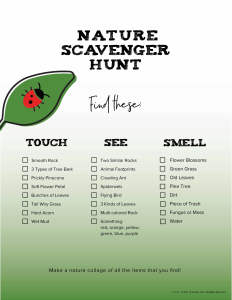
Take the children outside and give them a list of items to find in nature, such as a leaf, a rock, or a flower. It helps them learn about the environment and develop observational skills.
Shape Sorting:
Cut out different shapes from colored paper and ask the children to sort them into the corresponding shape piles. This activity helps them recognize and differentiate shapes.
Sensory Bin Exploration:
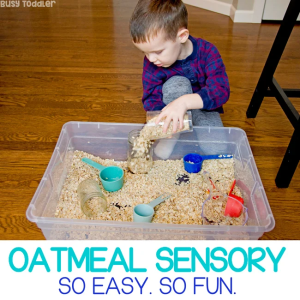
Fill a bin with materials like rice, beans, or sand, and hide small objects inside. Let the children dig and explore, encouraging them to describe what they find by touch. This activity stimulates their senses and promotes language development.
Alphabet Treasure Hunt:
Hide alphabet cards around the room or outdoor space. Provide clues to help the children find the cards and learn the alphabet along the way.
Counting with Playdough:
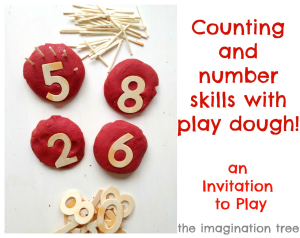
Ask the children to create small balls of playdough and count them out loud. You can also add objects like buttons or beads for them to count and compare quantities.
Puzzles:
Choose age-appropriate puzzles with colorful pictures and different levels of difficulty. Puzzles enhance problem-solving skills and hand-eye coordination.
Color Mixing Experiment:
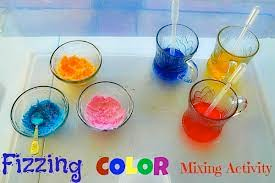
Set up a tray with primary colors of paint or food coloring and let the children mix them to discover secondary colors. It teaches color theory and allows for hands-on exploration.
Name Recognition:
Write each child’s name on a separate piece of paper or index card. Let them identify and match their names with their belongings or place them on a board with Velcro for easy manipulation.
Shape Tracing:
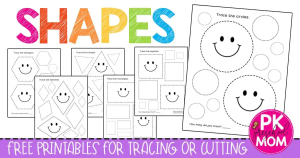
Draw simple shapes on large pieces of paper or cardboard. Provide crayons or markers and encourage the children to trace the shapes, helping them develop fine motor skills and shape recognition.
Conclusion
Reading, arts and crafts, outdoor play, cooking and baking, music and dance, sensory play, and nature exploration are just a few examples of the many activities that can support your child’s learning and development.
By incorporating these activities into your child’s daily routine, you can help them build essential skills, foster a love of learning, and prepare them for formal schooling.
Remember that the most important thing is to have fun and enjoy the time you spend with your child while supporting their education.
References
- Bus, A. G., & Van IJzendoorn, M. H. (1999). Phonological awareness and early reading: A meta-analysis of experimental training studies. Journal of Educational Psychology, 91(3), 403-414.
- Milbrandt, M. K., & Felkey, A. (2019). The benefits of art for young children. Dimensions of Early Childhood, 47(1), 25-31.
- Markopoulos, T., & Brooks, P. J. (2018). The effects of drawing on memory performance in young children. Frontiers in Psychology, 9, 2439.
- Bento, G., Dias, G., & Lira, M. (2016). Children’s outdoor play and learning environments: Returning to nature.

